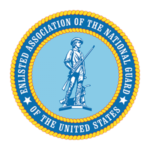As most Military Technicians and other Federal employees are keenly aware, Federal law does not allow them to enroll, participate in, or consider TRICARE Reserve Select (TRS) as an option for health care for them or their families. Even with the most recent change coming in 2020 that would open the door for Technician enrollment in TRS after 1 January 2030, the delay and restriction are unwelcomed by the majority of Technicians. And for good reason—TRS can be much cheaper economically than any Federal health care benefit program. Technicians are true behind the scene heroes of the National Guard, who are daily ensuring that the National Guard lives up to the moto “Always Ready, Always There.” They are the support mechanism behind maintenance, medical readiness, training, personnel actions, and almost every scope of readiness.
But why is this class of employees excluded from coverage?
The reason lies in title 10 of the United States Code, Section 1076d. It reads, starting in subsection (a) Eligibility:
“(1) Except as provided in paragraph (2), a member of the Selected Reserve of the Ready Reserve of a reserve component of the armed forces is eligible for health benefits under TRICARE Reserve Select as provided in this section.
(2) During the period preceding January 1, 2030, paragraph (1) does not apply to a member who is enrolled, or is eligible to enroll, in a health benefits plan under chapter 89 of title 5.”
A little history, please. Back in 2004, TRS was originally enacted into law. It didn’t exist prior to 2004. America was engaged in the Global War on Terrorism and our military was deployed to Iraq. Congress was made aware of the fact that many of our Guard and Reserve troops had no medical insurance and therefore might not be medically ready for deployment. So in the National Defense Act for Fiscal 2005, signed into law in October 2004, Congress set up a medical plan for Guard and Reserve troops that had no other medical insurance and they called it TRICARE Reserve Select. There were restrictions as to who could enroll—the main one being that the reservist must have had no medical insurance because they were unemployed or their employer did not offer medical insurance.
Congress also included (2) language which, at the time, simply stated that those Federal workers who were enrolled or eligible to enroll in a Federal health benefits plan were ineligible for TRS, period. The original language for (2) said: “Paragraph (1) does not apply to a member who is enrolled, or is eligible to enroll, in a health benefits plan under chapter 89 of title 5.” That (2) language changed in the National Defense Authorization Act for Fiscal 2020 when an on-ramp for Federal employees was set for the year 2030. The reason for the year 2030 is that the sponsors of the change in 2020 had to provide an offset for the cost over 10 years and they could not identify such an offset, so the implementation date was pushed out 10 years. A slick procedural maneuver. But it didn’t make Federal employees very happy that the change wasn’t immediate or phased in.
It is estimated that there are about 125,000 Federal employees in various agencies, to include some 51,000 Military Technicians within the Defense Department, who would benefit from bringing the effective date closer to today’s date. Obviously, not every Federal employee would choose to enroll in TRS, depending on their personal and family situation and availability of providers where they reside.
There have been efforts each subsequent fiscal year to advance the implementation date, but so far, to no avail. The latest attempt to do so is the recent introduction of House bill 7953 by Representative Andy Kim (D-NJ), with a companion bill introduced in the Senate (Senate bill 4116) by Senator Richard Blumenthal (D-CT). Typically, even though these standalone bills are introduced and referred to their respective Armed Services Committees, the sponsors try to roll the language from these bills into the next version of the National Defense Authorization Act.
EANGUS applauds Representative Kim and Senator Blumenthal, and other original co-sponsors, who introduced the legislation. EANGUS will be strongly encouraging Members of Congress and staff to include these provisions in the National Defense Authorization Act for Fiscal 2025, being worked this summer for implementation on October 1, 2024.
“This pivotal legislation represents a significant stride forward in recognizing and addressing the unique needs of our service members who serve both in uniform and as civilians within the federal government. This bill is more than a policy change; it’s a testament to our Nation’s respect for their dual service and a commitment to their health and well-being. EANGUS supports this legislation and thanks Senator Blumenthal and Representatives Kim and Kiggans for their leadership. Together, we can enhance the readiness and vitality of our Armed Forces, ensuring they are as robust and resilient as the Nation they protect,” said Daniel Reilly, EANGUS President.
You can be a part of this change and share the voice of EANGUS. First, click here to read the full press release on the legislation, then visit the EANGUS Legislative Action Center to send a message to congress to let them know you need their vote of support!



